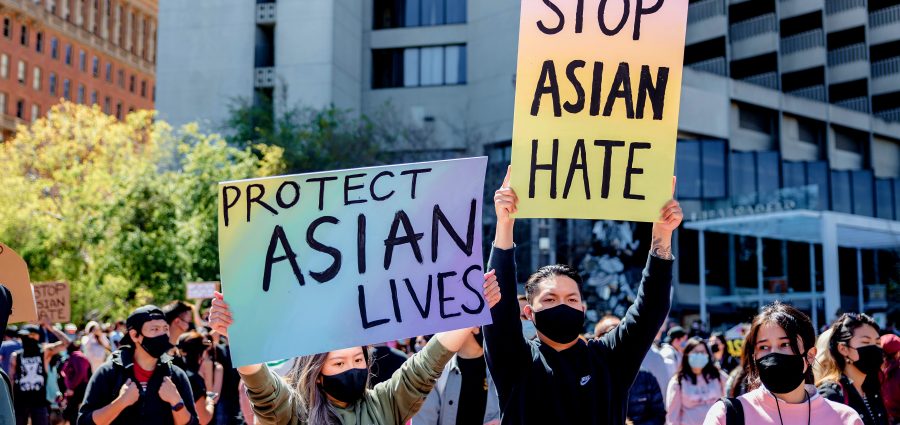The Race War
Seen in its historical context, the American tech war on China is a race war! Learned foreign policy savants regard the current hostility between the US and China as an inevitable product of the Thucydides trap. The leading power, i.e. the United States, is automatically hostile to the rising power, i.e. China. This phenomenon certainly does exist. But this trap does not fully account for the dislike and mistrust America has demonstrated towards China. This dislike and mistrust existed long before a communist government ever took over in China. The not so distant past’s treatment of Chinese people in the US is a sorry indicator—lynchings, burning down of Chinese businesses and a myriad of anti-Chinese laws. (Historically all non-whites were mistreated in the US). Most prominently there was the infamous 1882 Chinese Exclusion Act which (or its successors) was not repealed until 1943. While Europeans poured into the young republic, Chinese were excluded.
I constantly hear from people that all of America’s domestic anti-Chinese activities and attitudes are a thing of the past. But anti-China attitudes are firmly implanted in America’s collective DNA and affect foreign policy. Consider the one thing otherwise deeply divided Democrats and Republicans are in full agreement on. That is that China is the bad guy.
South Dakota Governor Kristi Noem made the ridiculous statement on Fox News that China had a two thousand year plan to destroy the United States. Florida and Texas have just passed laws restricting Chinese ability to buy property. And of course there is the national campaign to ban TikTok.
Micron—The Chinese Finally Took the Bait
The United States has arbitrarily placed around 250 Chinese tech firms and research institutes on one sort of embargo list or another. China is understandably angry over this but it can only do self-destructive acts to get revenge. Observers have expected China to retaliate but wisely it has not done so. Up until now. China has just singled out memory chip giant Micron for sanctions as a national security risk. Most analysts have classified this action as in the “not really in the big deal” category. But the symbolism is great.
China in my opinion has made a tactical mistake. Sounding like a school teacher reprimanding a wayward student, Commerce Secretary Gina Raimondo has already said the US “will not tolerate” the Chinese Micron decision. China has a long way to go in computer chips before it catches up to the US and its allies. Right now, China cannot go one on one in a semiconductor technology battle with the US. The China haters will jump on this sanction on Micron as an opportunity to hurt China and further disrupt the global semiconductor market. The American bully will likely get its way. The US has its own version of Say’s Law. Do as we say, not as we do.
The Chips Act Is an Inflationary Disaster
As I am writing this, the markets have just rendered an incredible reaction to the latest earnings of an incredible company named Nvidia. The Nvidia H100 semiconductor processor is right at the center of the AI revolution. Over the years, Nvidia pioneered the GPU chip so crucial for everything from gaming, data centers, crypto mining, autonomous driving and AI.
Nvidia, as most people know, has historically been joined at the hip with Taiwan Semiconductor (TSMC). Both companies working together pioneered the highly successful fabless model. The American company—Nvidia—designed the chips – and the Asian Company—TSMC- – manufactured them. TSMC brought skills, a work ethic, a component supply network partly in China and a lower cost that could not be duplicated in the US. If Nvidia had to do its own manufacturing and/or do it in the United States it would not be the incredible success it is today. The Nvidia-TSMC relationship represents a triumph of both American capitalism and globalism.
Nevertheless, the great patriots in the US government cannot stand the sight of success. They have become enamored by the small thinking of Industrial Policy. Chip manufacturing must be done on-shore in the USA and not in untrustworthy Asia. $52.7 billion has been allocated to subsidize semiconductor manufacturing in the US. (Actually it is not clear if all the $52.7 billion will go to subsidizing chips. Who knows where the politicians will allocate the money). Moreover, TSMC has been pressured into building a huge new fab in Arizona. No matter that it will probably cost twice as much to produce high end chips in the US as in Taiwan. Pure supply side inflation.
Making things worse the company that is expected to get the most money from the Chips Act is Intel. America’s least successful large semiconductor company and the only one doggedly pursuing the less efficient, old fashioned integrated designer/fab model. Reward the losers—typical American government policy.
Nvidia has made it very clear that China constitutes a major market for its products. It had to dumbdown its H100 superchip in its sales to China to get around Department of Commerce restrictions. Competition from the global market including China is what made Nvidia the American success story that it is.
Question: Why is the US trying to suck the life from the Taiwan economy through measures like the Chips Act. The Chips Act is supposed to bring semiconductor manufacturing back from Asia. In other words, hollow out the Taiwanese economy. At the same time the US has been implying it would risk American lives to defend the island against Chinese attack? Does this make sense? So who is going to kill Taiwan first – the US or China?
Economic Rationality Still Wins Sometimes
Other than Tesla, US cars have fallen in popularity in China. Once upon a time, China was a really profitable market for GM and Ford. China is the world’s largest car market and is critically important to global manufacturers. China produced 21 million cars in 2022 vs 10 million in the US and 7.8 million in Japan. GM’s car sales in China fell by 20% from 2021, while Ford’s declined by 33.5%.
China is jumping ahead of the rest of the world in the production of electric vehicles (ev) and the batteries needed to run them. As a certified environmentalists, the Biden administration should be thrilled that the world’s second largest economy has jumped on the ev bandwagon. But maybe they are not. It should be noted that the two largest ev producers in China are Tesla (with its gigafactory in Shanghai) and BYD. Elon Musk is founder of Tesla and Warren Buffet has been a major investor in BYD. Hmm. Musk and Buffet – call the FBI.
It seems that the State of Michigan has just approved $175 million in tax incentives for a Chinese ev battery firm named Gotion. Reportedly 2300 jobs would be brought to a rural community and this might be one step towards keeping America in the ev race. Economics triumphed over racial animosity! For now.
Supply Side Inflation Should Not Be Fought With Interest Rate Hikes
People just do not get it. Industrial policy and reshoring on balance are inflationary supply side measures. This chips industrial policy plus all the many tariffs against China produce supply side derived inflation. Fed increases in interest rates have nothing to do with supply side inflation. If the Fed raises interest rates in response to supply side induced inflation this makes no sense. Fed tightening is not designed to counter supply side inflation. Monetary policy affects the demand side, not the supply side.
The low inflation that prevailed for many years was largely derived from globalization. This despite excessively easy monetary policy. Unfortunately, the ideological winds have changed and in Washington the golden age of globalization is over.
One Type of Globalization That Hasn’t Gone Away
It is interesting that so many of the large tech companies that will be involved with AI have CEOs who were not born in the US. For example, Nvidia, AMD, Broadcom, Microsoft, Alphabet, Qualcomm, Tesla, IBM, Adobe, Cadence, Synopsis. So long as America can vacuum in the world’s most talented people, it can compete. It certainly cannot rely on its faltering public education system. America needs globalization of all types.








